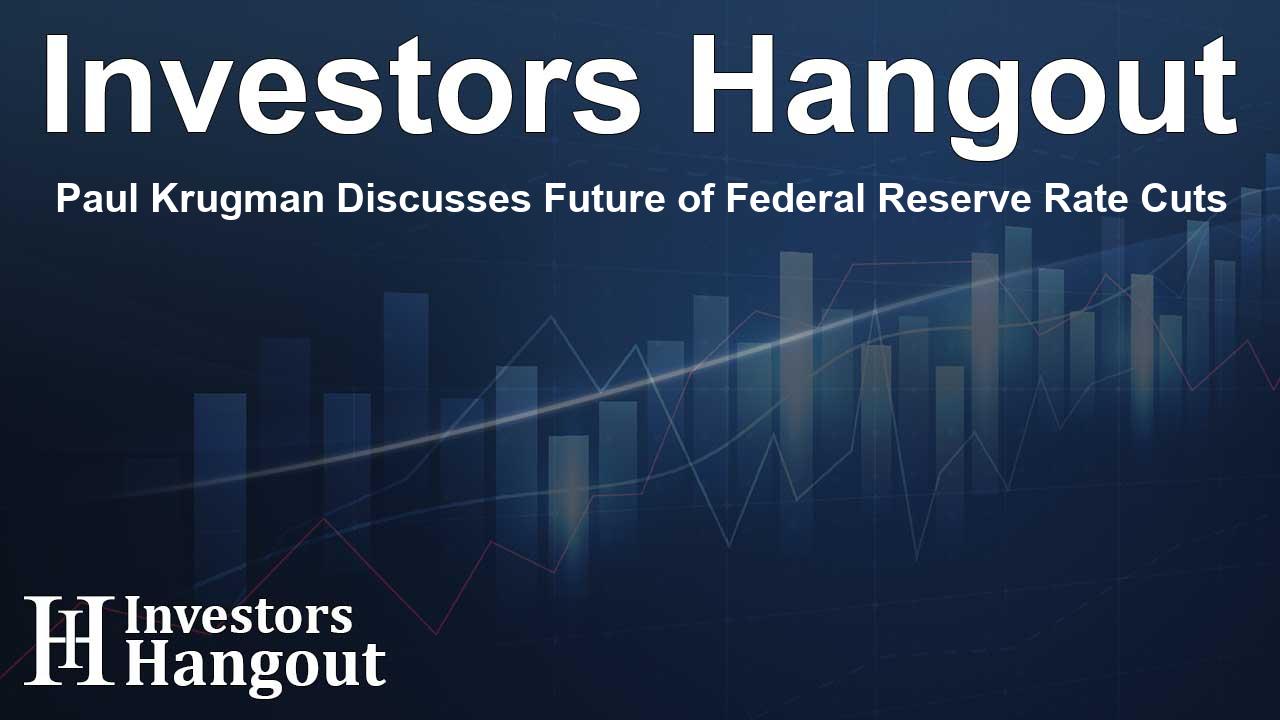Paul Krugman Discusses Future of Federal Reserve Rate Cuts

Understanding the Federal Reserve's Future Rate Adjustments
The Federal Reserve's rate-setting committee, known as the Federal Open Market Committee, is gearing up for a crucial two-day meeting. With a current expectation of a 67% likelihood for a 50-basis-point rate cut, opinions vary significantly among economists regarding the implications of such a move. Paul Krugman, a respected economist and Nobel laureate, expressed concerns about the current high levels of the Fed funds rates.
Latest Inflation Data Analysis
Krugman highlights the Federal Reserve's target inflation rate of around 2% over the long term. The most recent data reflects an annual rate of 2.5% for headline inflation and 3.2% for core inflation as of August. It's essential to note that when considering personal consumption expenditures, the headline and core inflation rates for July stood at 2.5% and 2.6%, respectively, suggesting a marginal alignment with the Fed’s target.
Job Market Insights
Discussing the job market, Krugman pointed out that job openings have decreased to 8.83 million in July, the lowest since 2021, indicating a cooling in the labor market compared to pre-pandemic levels. This data suggests that although inflation is a primary concern, employment trends are also vital for shaping economic policies.
Contemplating Rate Cuts
Krugman believes that, even with a potential 50-point cut, the Fed's funds rate would still be approximately 300 basis points higher than it was before the pandemic. This presents a challenging question: How can such elevated rates be justified in these economic conditions?
The Risk Factors Involved
According to Krugman, the economy does not currently reflect signs of a recession. He posits that the Fed may be cautious, possibly due to residual concerns from the inflation spikes seen during 2021 and 2022. He warns that if the Fed maintains its stance for too long, it may result in greater negative consequences. He specifically points out that risks are asymmetric; while excessive monetary stimulus may gradually mitigate inflation, a downturn in the labor market can occur much more rapidly.
The Weak Argument for Incrementalism
While there’s a possibility of a 50 basis-point cut, Krugman contends that the case for incrementalism is particularly weak at this juncture. He emphasizes the importance of re-evaluating the Fed’s approach and adopting a more proactive strategy in adjusting rates according to prevailing economic conditions.
Alternative Perspectives on Rate Cuts
In contrast to Krugman’s views, some economists, like Peter Schiff, argue against immediate rate cuts, suggesting it could weaken the dollar and exacerbate inflationary pressures. Schiff’s perspective is that easing rates could lead to a detrimental cycle that hampers economic stability.
Investment Insights with TIPS Bond ETF
The performance of the iShares TIPS Bond ETF, which tracks inflation-protected U.S. Treasury bonds, is noteworthy. The ETF ended its recent session up 0.34% at $110.82, indicating a positive response from investors amid these economic discussions.
Frequently Asked Questions
What is the Federal Open Market Committee's role?
The Federal Open Market Committee is responsible for setting the direction of monetary policy in the United States, primarily through managing interest rates.
Why is Paul Krugman concerned about high Fed rates?
Krugman believes that the current high levels of Fed rates are unjustifiable given the cooling labor market and the inflation data aligning closely with the Fed's targets.
What are the potential consequences of a 50 basis-point cut?
A 50 basis-point cut could still leave Fed rates significantly elevated compared to pre-pandemic levels, which could affect borrowing costs and economic stability.
How does the job market influence inflation?
The job market plays a critical role in inflation trends; a cooling job market can reduce wage pressures, thereby influencing overall inflation rates.
What is the TIPS Bond ETF?
The iShares TIPS Bond ETF is an investment vehicle that tracks the performance of U.S. Treasury bonds designed to protect against inflation.
About The Author
Contact Owen Jenkins privately here. Or send an email with ATTN: Owen Jenkins as the subject to contact@investorshangout.com.
About Investors Hangout
Investors Hangout is a leading online stock forum for financial discussion and learning, offering a wide range of free tools and resources. It draws in traders of all levels, who exchange market knowledge, investigate trading tactics, and keep an eye on industry developments in real time. Featuring financial articles, stock message boards, quotes, charts, company profiles, and live news updates. Through cooperative learning and a wealth of informational resources, it helps users from novices creating their first portfolios to experts honing their techniques. Join Investors Hangout today: https://investorshangout.com/
The content of this article is based on factual, publicly available information and does not represent legal, financial, or investment advice. Investors Hangout does not offer financial advice, and the author is not a licensed financial advisor. Consult a qualified advisor before making any financial or investment decisions based on this article. This article should not be considered advice to purchase, sell, or hold any securities or other investments. If any of the material provided here is inaccurate, please contact us for corrections.
